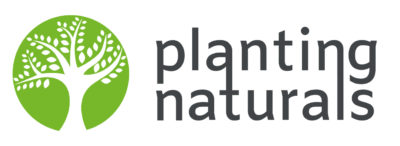BACKGROUND STORY
In 2014, Natural Habitats Sierra Leone took over an existing land lease from WAA2, covering the entire Makpele Chiefdom in Pujehun District, Sierra Leone. It quickly became apparent that not all communities were happy with the existing lease and that negotiations lacked free, prior and informed consent of all stakeholders.
Natural Habitats immediately started a consultative process within the chiefdom and established
Development and Grievance Committee to settle any unresolved conflicts. NHSL team engaged with the landowner association and reached three Land Owner Agreements (LOAs). Even though the company tried to make the negations process as transparent as possible, the tensions between different stakeholder groups were still present within the chiefdom.
Even though the company tried to make the negations process as transparent as possible, the tensions between different stakeholder groups were still present within the chiefdom.
In 2016, Natural Habitats Sierra Leone joined forces with the civil society organisation Solidaridad West Africa to help with the land tenure and livelihoods support processes. The collaboration was enabled through the DFID-funded LEGEND programme. The programme included facilitation of stakeholder consultations, training on land governance and land rights in the local dialect and support to farmers to organise themselves and apply good agronomic practices for production of vegetables, groundnuts, cassava and rice.

MULTI-STAKEHOLDER PLATFORM
NHSL inherited a lease that covered the entire Makpele chiefdom. This has resulted in a conflict between various communities within the chiefdom. Some of the concerns were addressed in the existing Development and Grievance Committee, but the platform was not extensive enough to cover all the issues.
Therefore, Solidaridad helped NHSL to create a local multi-stakeholder platform, which was following in the format of the national multi-stakeholder platform with the aim of making it inclusive, transparent and educational for all stakeholders on land rights and governance.
One of the major achievements of the platform is the role it played in the creation of a new lease between the company and the landowning families. The original lease has been significantly reduced and only signed by the families who are fully aware of their rights. At the platform, all stakeholders could share their concerns with the current lease, and all partners took these concerns seriously. In other words, the platform fostered transparency in the land acquisition process and played a significant role in resolving the conflicts within the chiefdom.
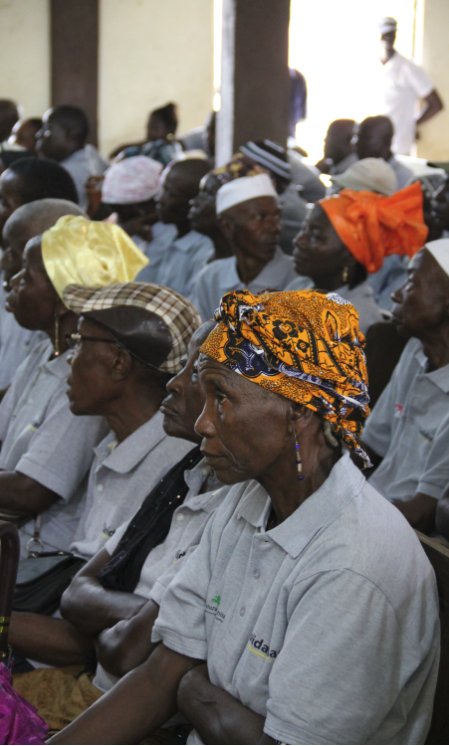

LIVELIHOOD SUPPORT
In May 2016, as part of the Natural Habitats Sierra Leone community development program activities, NHSL initiated a food security project and contributed 24 bushels of rice to the land owners in three communities: Tuasu, Manjama, and Gbahama. Later that year, Solidaridad took over the project activities and included them as part of the LEGEND project. This cooperation helped to extend the project and bring it to the next level:
- 783 farmers supported to plant 429 bushels of groundnuts.
- 761 farmers supported to plant 144 bushels of rice.
- 761 farmers supported to plant 377 bundles of cassava sticks.
- 865 (male: 332, female: 454) farmers received food security training.

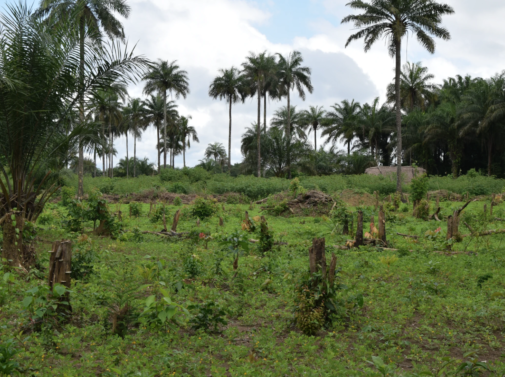
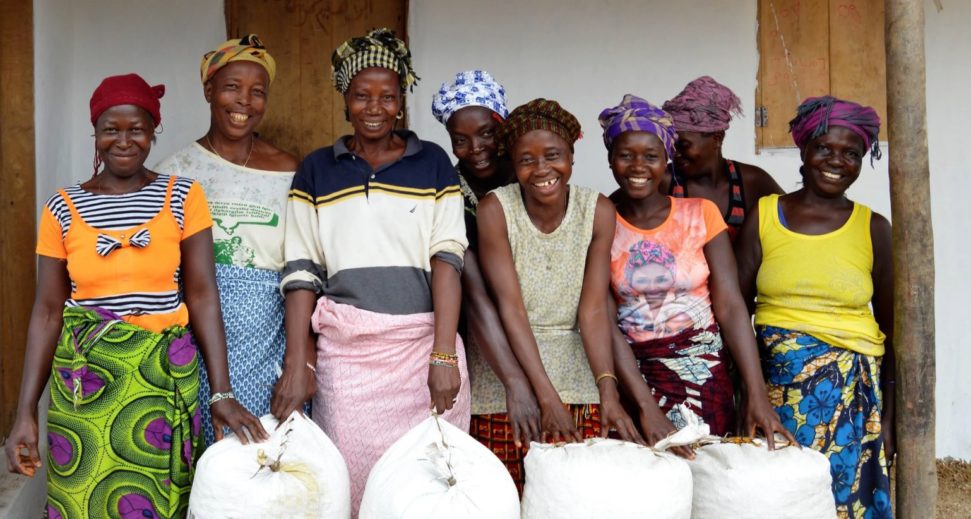
PARTICIPATORY MAPPING EXERCISE
In May 2018, Natural Habitats Sierra Leone began participatory mapping with the families, with whom the company had three land owner agreements. However, it quickly became apparent that the best results would be achieved through the collaboration between Solidaridad and NHSL.
In the following months, a total of 3,302 hectares were mapped using best practice participatory mapping.
The participatory land mappings engaged not only those families who had agreed to lease their land to the company but also those who had not agreed. This was important for the trust-building within the communities: all relevant stakeholders were included, regardless of their views about the project. This extensive period of land owner consultation allowed NHSL to fully understand the land use patterns present in each parcel of leased land, an essential part of sustainable palm oil development.
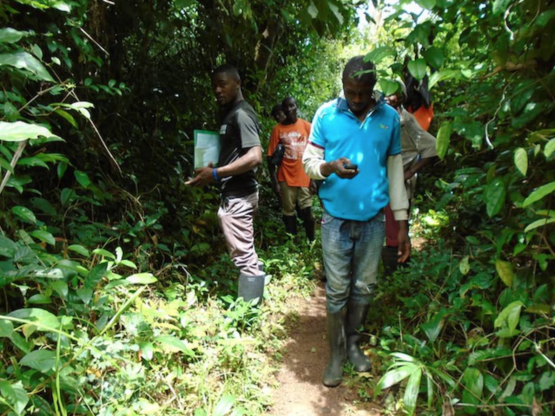
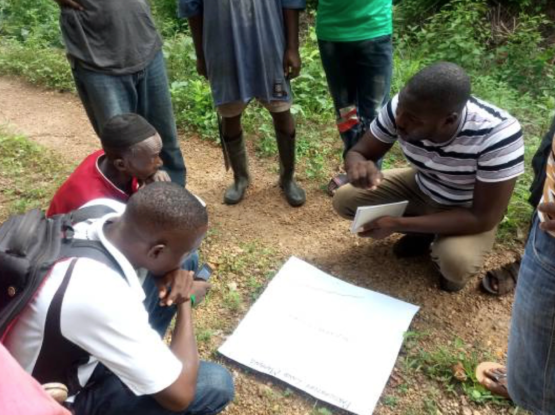
LAND TENURE DOCUMENTATION
Another land tenure project was initiated by NHSL and Solidaridad at the second oil palm operational site of the company. NHSL owns a small palm oil mill, Nedoil, that works with more than 2,000 smallholder farmers in the area. Smallholders receive continuous training and education on organic palm growing practices. Within the project, Nedoil and Solidaridad began the process of creating locally recognised land tenure titles for all farmers in the organic network. An important step considering the local lack of formal procedures to prove land tenure rights. Pa. Kaprr Gbla, a landowner from Mabarrpoli, thanked Nedoil for such a wonderful project they have taken to their communities. He went further to emphasise that the activity have lessen their burden and the thousands of Leones they should have taken to the ministry of lands for such a document. He concluded by thanking Nedoil and Solidaridad for helping them now to clearly distinguish between land owners and land users and also helping their communities to prevent future land conflicts.
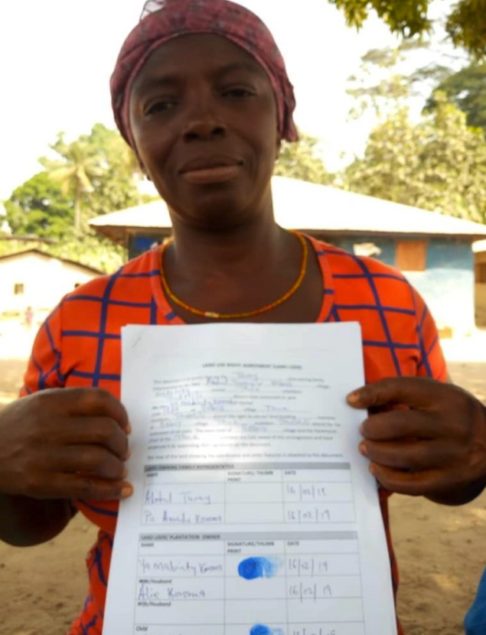
HISTORIC LEASE SIGNING
On December 12, 2018 in Zimmi, the chiefdom headquarters, Natural Habitats Sierra Leone signed a new land lease agreement with the land owners and people of Makpele Chiefdom. With this new agreement, the original lease of 30,700 hectares has been reduced to 2,320 hectares, of which each hectare has been leased with full support of the landowners and strictly following Sierra Leone’s National Land Policy.
“I am glad for what has happened today. This is what we have been yearning for. We did not agree with the 30,700 hectares, so we are really happy that the coverage area has been reduced," said Ibrahim Fofanah, Chairman of Makpele Land Owners and Users Association, who formerly opposed of the lease.
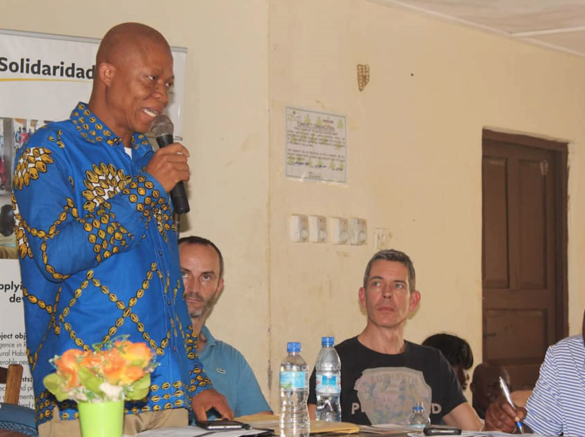
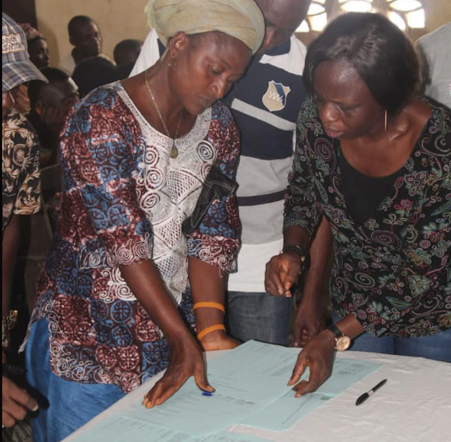
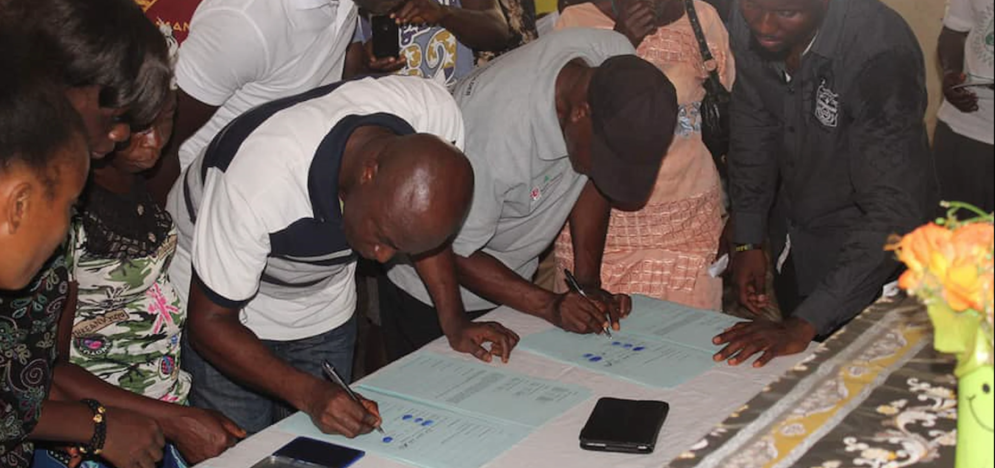
PARTNERSHIP WITH SOLIDARIDAD WEST AFRICA
Through the fruitful collaboration with Solidaridad West Africa great results have been achieved in the chiefdom: a multi-stakeholder platform was established, the land was mapped in a participatory manner and, most importantly, the new reduced lease was signed by the company.NHSL believes that Solidaridad’s role as a neutral facilitator had promoted this dialogue, cleared doubts and finally, brought peace to the chiefdom.

